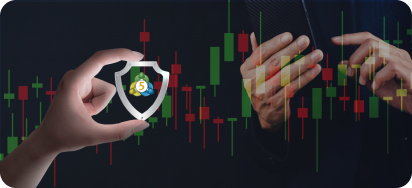Nancy Pelosi Stocks: Track Her Trades and Returns
In recent years, few names have stirred as much debate in financial circles as Nancy Pelosi, not for her legislative achievements alone, but for the sharp spotlight on her and her family’s stock market activity.
While she is best known as the first woman to serve as Speaker of the U.S. House of Representatives, Pelosi has also become a household name among retail traders, thanks to a growing trend of tracking Congressional trades.
The phrase “Nancy Pelosi stocks” has exploded in popularity across social media platforms, stock forums, and even professional trading circles. Her family’s stock trades—particularly those made by her husband, venture capitalist Paul Pelosi—have generated widespread interest because of their size, timing, and uncanny alignment with market-moving legislation.
Who is Nancy Pelosi?
Nancy Patricia Pelosi is one of the most influential figures in American politics. She has served as a Democratic member of the U.S. House of Representatives since 1987, representing California’s 11th congressional district, which includes most of San Francisco.
Pelosi made history in 2007 when she became the first woman to serve as Speaker of the House, a role she held until 2011, and then again from 2019 to 2023. She officially stepped down from Democratic leadership roles in late 2022 but remains an active member of Congress.
Throughout her tenure, Pelosi has had significant influence over major legislation concerning healthcare, financial regulation, and national security. As Speaker, she was one of the few people with early access to non-public discussions and pending policy developments—factors that have fed public speculation about whether lawmakers like her have an unfair advantage in the stock market.
However, it’s important to note that Nancy Pelosi herself rarely places trades. Her husband, Paul Pelosi, is a seasoned venture capitalist and handles the family’s investments. Still, because of disclosure laws that require members of Congress to report family trades, all activity conducted by Paul Pelosi appears under Nancy Pelosi’s name in official filings.
This distinction—between personal involvement and spousal transactions—has not stopped online traders and financial analysts from treating her disclosures as a potential signal for investment decisions.
Why Are Nancy Pelosi’s Stock Trades So Closely Watched?
The intense scrutiny of Nancy Pelosi’s stock trades is rooted in a broader concern: do U.S. lawmakers have an unfair advantage when trading financial assets? As Speaker of the House, Pelosi had access to highly sensitive economic information, long before it reached the public. This includes briefings on monetary policy, defence contracts, tax reforms, and upcoming regulations—all of which can directly impact stock prices.
While Pelosi has consistently denied any misuse of insider knowledge, the timing and success of her family’s trades have raised eyebrows. Some trades were made just days before key policy announcements or market-moving decisions—sparking speculation that members of Congress might be profiting from information unavailable to the general public.
The Role of the STOCK Act
In response to growing public distrust, the STOCK Act (Stop Trading on Congressional Knowledge Act) was passed in 2012. It legally requires all members of Congress to publicly report any stock transaction over $1,000 within 30 to 45 days. This includes transactions made by their spouses and dependent children.
While the law was meant to increase transparency, it inadvertently created a new breed of retail investors—those who closely watch these disclosures to mirror or front-run the trades of powerful political figures. Nancy Pelosi’s reports are among the most followed.
Pelosi as a Symbol of Political Trading
Though many members of Congress trade stocks, Pelosi stands out.
- Her reported trades are large in size
- Many have yielded exceptional returns
- She was the most powerful legislator in the U.S. Congress until recently
- She’s become a focal point of media reports and retail trading chatter
Despite calls for reform—including bipartisan efforts to ban stock trading by lawmakers altogether—Pelosi has argued that the U.S. remains a free market and that members of Congress should be able to participate in it, provided they follow the law.
Still, public interest in her stock moves only seems to grow.
When Did Nancy Pelosi Start Investing in Stocks?
Nancy Pelosi’s stock market involvement, at least on paper, dates back decades. However, the first major public attention to her trading activity began in the early 2000s when her husband, Paul Pelosi, started making large and well-timed equity investments.
Paul Pelosi: The Investor Behind the Trades
Paul Pelosi is a venture capitalist and the founder of Financial Leasing Services, Inc., a San Francisco-based investment and consulting firm. He has been trading stocks, options, and other securities for years—long before these transactions began drawing national headlines. Many of the trades attributed to Nancy Pelosi are actually executed by Paul through his private investment vehicles.
Although Nancy Pelosi herself has repeatedly stated that she does not personally engage in investment decisions, Congressional ethics rules require lawmakers to disclose any financial transactions made by their spouses. That means Paul Pelosi’s trades must be reported under Nancy Pelosi’s name, making her portfolio publicly visible.
Key Disclosure Dates and Escalation in Activity
While some disclosures occurred in earlier years, the real escalation in frequency and value of the trades began in the mid-to-late 2010s—right around the time she regained the role of Speaker in 2019.
Notable patterns include:
- 2018–2020: Surge in options trading, especially on Big Tech stocks
- 2021: Record trades in Nvidia, Apple, Microsoft, Tesla, and Alphabet
- 2022–2023: Controversy surrounding trades linked to semiconductor legislation
The Public Financial Disclosure Reports required by the STOCK Act began making all these activities easily trackable. As a result, Pelosi’s trades became a benchmark for retail investors, sparking the rise of “Pelosi stock tracker” tools and Twitter bots.
Why the Timing Matters
Critics point out that several of these trades were made:
- Right before or after Congressional hearings
- Ahead of votes on technology regulation or defence spending
- In industries heavily impacted by federal policy
Even though there is no direct evidence of insider trading, the precision of trade timing—especially with stock options—has prompted ongoing calls for stricter rules or outright bans on Congressional stock ownership.
How Much Has She Made From Stocks?
While Nancy Pelosi’s official salary as a member of Congress is publicly disclosed (roughly $223,500 per year as Speaker), her family’s net worth is estimated to exceed $100 million, with a substantial portion attributed to stock market investments made by her husband, Paul Pelosi.
Estimating exact profits from their stock trades is difficult due to:
- Disclosures only showing value ranges (e.g., “$500,001–$1,000,000”)
- No requirement to report the exact buy or sell price
- Lack of specific reporting on realised gains
Estimated Returns from Publicly Disclosed Trades
Several independent analysts, including platforms like Unusual Whales, Quiver Quant, and FinePrint, have tracked Pelosi trades and backtested their performance. Some key findings include:
- Pelosi trades have consistently outperformed the S&P 500 between 2019 and 2022.
- A model portfolio mirroring the Pelosi disclosures reportedly yielded 20–30% annualised returns in some years.
- Her family made millions in capital gains from well-timed trades in companies such as Nvidia, Apple, Microsoft, and Tesla.
What Are the Most Famous Pelosi Trades?
Over the years, several trades associated with Nancy Pelosi (via her husband Paul Pelosi) have drawn massive attention—both for their size and timing. These trades are often in high-growth sectors like technology, and many occurred just before or after significant policy discussions, earnings reports, or federal funding announcements.
Here are some of the most widely discussed Pelosi trades:
Nvidia (NVDA) – The Semiconductors Bet
Timeline: Multiple trades in 2021 and 2022
Estimated Value: Over $1 million in options
Why It Was Controversial:
- Paul Pelosi bought call options weeks before Congress began discussing the CHIPS Act, a bill allocating billions in subsidies to U.S. semiconductor manufacturers.
- The optics of trading Nvidia ahead of legislation that could boost its business caused a public backlash.
- Paul later sold the position at a loss amidst the scrutiny, though many questioned whether that decision was reputational damage control.
Tesla (TSLA) – EV Growth and Infrastructure Spending
Timeline: March 2020 and repeated in 2021
Estimated Value: $500,000–$1 million
Why It Was Noticed:
- The purchases coincided with early momentum in the electric vehicle boom and Biden’s infrastructure and green energy plans.
- Tesla’s stock surged in 2021, and Pelosi’s position reportedly made a sizable profit.
Microsoft (MSFT) – Defence Contracts and Big Tech Expansion
Timeline: March 2021
Estimated Value: $500,000–$1 million in call options
Key Link:
- Just two weeks later, Microsoft secured a $22 billion U.S. Army contract for augmented reality headsets.
- The timing fuelled suspicion about possible access to classified or pre-award knowledge.
Activision Blizzard (ATVI) – Ahead of Microsoft’s Acquisition
Timeline: January 2022
Estimated Value: $1 million
Details:
- Paul Pelosi purchased stock in Activision Blizzard just before Microsoft publicly announced its $69 billion acquisition of the company.
- The deal pushed ATVI’s stock price up significantly, raising concerns that the trade was made with knowledge of the deal.
Alphabet, Meta, and Other Big Tech Bets
What was the pattern:
- Repeated investments in tech giants such as Alphabet (Google) and Meta (Facebook) over several years.
- Critics have highlighted how these investments often coincide with regulatory discussions on antitrust and data privacy—areas Pelosi has legislative oversight on.
Why These Trades Matter
Each of these examples contributed to the growing public perception that:
- Politicians may benefit from privileged information.
- Timing trades near legislative milestones raises ethical questions, even if legal.
- The lack of precise disclosure requirements (no exact price or time) creates a grey area where accountability is limited.
These trades have become symbolic—not just of the Pelosi household, but of a broader Congressional trading culture that some believe needs reform.
How to Find What Stocks Nancy Pelosi is Buying or Selling
Because of the STOCK Act, members of Congress are legally required to disclose stock transactions involving themselves, their spouses, or their dependent children. These disclosures are called Periodic Transaction Reports (PTRs), and they allow the public to see the type of trade, the date, and an estimated value range.
While these reports don’t provide exact prices or profits, they do offer a real-time window into what politicians—including Nancy Pelosi—are buying and selling.
Where to Access the Disclosures (Official Sources)
1.U.S. House Clerk’s Website (www.disclosures-clerk.house.gov): It is the official source for financial disclosures by House members.
2.Senate Financial Disclosures (www.efdsearch.senate.gov): It has disclosures from all U.S. senators.
Third-Party Trackers (User-Friendly Alternatives)
Several platforms scrape Congressional disclosures and present them in visual dashboards:
1.Quiver Quantitative (www.quiverquant.com)
2.Unusual Whales (www.unusualwhales.com)
4.Capitol Trades (www.capitoltrades.com)
What You’ll See in the Reports?
Each transaction disclosure typically includes:
- Transaction date
- Type (buy/sell, options/stock)
- Asset name or ticker
- Value range (e.g., $15,001–$50,000)
- Spouse’s name (if applicable)
Note: Lawmakers have 30–45 days to disclose a trade, so you may not see it immediately after the transaction.
How Often Pelosi Trades Are Disclosed
Paul Pelosi’s trades are often:
- Reported in batches, rather than one-by-one
- Disclosed several weeks after the trade date
- Focused on large-cap tech and growth stocks, with frequent options activity
Because of this delay, retail traders treat the disclosures more as a signal than a front-running opportunity.
Should You Follow Pelosi’s Stock Picks?
The idea of mirroring Nancy Pelosi’s trades has become popular among retail investors, Reddit traders, and even fintech product creators. But should you actually copy her stock picks? The answer depends on your goals, risk tolerance, and how you interpret the intent behind the trades.
| Factor | Pros | Cons |
| Performance | Strong historical gains | No guarantee of future success |
| Transparency | Publicly available data | Delayed reporting limits use |
| Trade Types | Insight into major companies | Often includes risky options |
| Usefulness for Retail | Sector signaling, long-term picks | Not ideal for short-term trading or full replication |
Pelosi’s trades are not magic signals. They offer a window into how a politically connected investor approaches the market, but they are only one of many tools a trader or investor should use.
If you treat her disclosures as a trend indicator or thematic signal, rather than a buy/sell list, they may add value to your broader strategy.
Trade with Ultima Markets
Ultima Markets is a fully licensed broker and a multi-asset trading platform offering access to
250+ CFD financial instruments, including Forex, Commodities, Indices and Shares. We
guarantee tight spreads and fast execution. Until now, we have served clients from 172
countries and regions with our trustworthy services and well-built trading systems.
Ultima Markets has achieved remarkable recognition in 2024, winning prestigious awards
such as the Best Affiliates Brokerage, Best Fund Safety in Global Forex Awards, and
the Best APAC CFD broker in Traders Fair 2024 Hong Kong. As the first CFD broker to join
the United Nations Global Compact, Ultima Markets underscores its commitment to
sustainability and the mission to advance ethical financial services and contribute to a
sustainable future.
Ultima Markets is a member of The Financial Commission, an international independent
body responsible for resolving disputes in the Forex and CFD markets.
All clients of Ultima Markets are protected under insurance coverage provided by Willis
Towers Watson (WTW), a global insurance brokerage established in 1828, with claims
eligibility up to US$1,000,000 per account.
Open an account with Ultima Markets to start your index CFDs trading journey.







![[MetaTrader 5 Mobile Trading Complete Guide] 7 Key Advantages for Real-Time Market Access](https://www.ultimamarkets.com/wp-content/uploads/2025/04/mt5_mobile_trading_card.jpg)
















